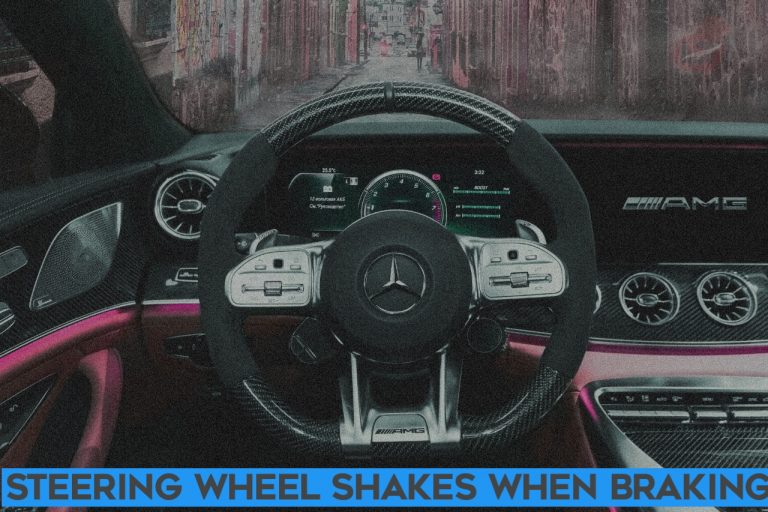If your steering wheel shakes when braking, then it’s an indication that there is a problem with your tire or brake system.
Except for self-moving cars, steering isn’t supposed to vibrate, move, shake, or pull independently.
You must pay attention to your car’s minor warning before it develops into something critical.
Without wasting much time, here are some reasons your steering wheel shakes when braking.
Steering Wheel Shakes when Braking – Causes
Five common reasons why the steering wheel shakes when brakes are applied are discussed below.
1. Bent Brake Rotors
Brake pads are designed to be smooth and flat, creating a smooth surface on which they can rest when the brakes are applied.
If your brake Rotors are twisted, bent, or warped due to the heat from the impact of the brake pad, then you’ll notice a shaky steering wheel when you apply the brakes.
This is because the brake pads will not have to make contact with a bent rotor, which will no longer be able to grip the system firmly.
If you decipher this fault quickly, you can reach your mechanic for a resurfacing or permanent rotor replacement.
2. Uneven Tire Alignment
Your car tires should be aligned parallel and at a right angle.
Incorrect tire alignment will result in uneven parts, causing friction and a shaky steering wheel.
This will also result in new tires wearing out fast, but this can be resolved by seeking an alignment service.
3. Unbalanced tires
Your cars are supposed to rotate at the same speed, but this can stop over time due to road conditions, driving habits, or differences in air pressure.
This further affects your suspension and axle, leading to heavy steering shakes when braking due to unbalanced tires.
This can be easily fixed by taking your car for balance in an auto repair shop.
4. Suspension Faults
Your vehicle’s suspension system comprises the shock absorber, coil, bushing, springs, and others that help you gain control after running into bumps, roadblocks, or potholes.
If any systems develop a fault, expect the steering wheel to shake whenever you brake or stop.
This is a significant issue that will need the service of a professional mechanic.
5. A sticky brake Pad Caliper
Brake calipers are the joints where your brake pads are fitted; they help bring the brake pads down when the brakes are applied.
But sometimes, your brake caliper might stick to your rotor, glued to your rotor ,instead of bringing down the brake pads when braking.
This will often cause driving difficulties as you’ll find it hard to get total control of the vehicle.
You can check out our article on sticky brake calipers to learn more about the problem.
Once you notice that your steering wheel shakes when braking due to a sticky brake caliper, kindly seek the attention of a mechanic.
FAQs
As an Amazon Service LLC Program Associate, V. Auto Basics earns from qualifying purchases. See Our Affiliate disclaimer.
